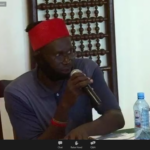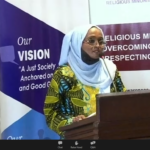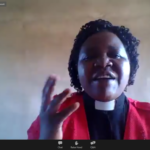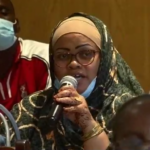The Religious and Minorities Project hosted a a virtual conference to examine the realities of religious minorities in Kenya and explore solutions to related issues. The other agenda points deliberated Interreligious Dialogue as Space for Representation and Visibility for Minorities and Marginalized Groups, Findings and Promising Practices from RMP Activities, Future of Religious Minorities in Kenya on the Road to the 2022 Elections. The conference sessions also highlighted some of the challenges that traditional religious leaders are facing in practicing their religion. For instance labeling, misconceptions like association with witchcraft. Religious minorities also shared some of the experiences religious profiling, challenges in accessing registration documents and general implementation of laws related to freedom of religion.
The conference contributed to the aspect of religious and traditional peacemakers having an opportunity to have their voices heard to share their perceptions, ideas amongst other civil society actors. The National conference paved way for series of county-level workshops with CSOs and religious leaders of different faiths on local advocacy challenges for religious minorities ‘rights.
______________________________________________________________________________________________
The Network, together with MUHURI, Islamic Relief Kenya (IRK), The Supreme Council of Kenya Muslims (SUPKEM) and Tangaza University College is currently implementing a project “Religious minorities in Kenya: Overcoming divides, respecting rights.” The objective of the project is to address the problems affecting the full enjoyment of rights by the Muslim minority and the African Traditional Religions (ATR) communities in Kenya, arising from mistrust and malpractice by the State authorities, misunderstandings with other faith-communities, and limited knowledge of constitutional rights, including gender equality. The project supports dialogue across faith groups, and between minority faith groups and state institutions, to positively influence the policies and their implementation concerning minorities’ rights. The project is funded by the Norwegian Agency for Development (NORAD).




